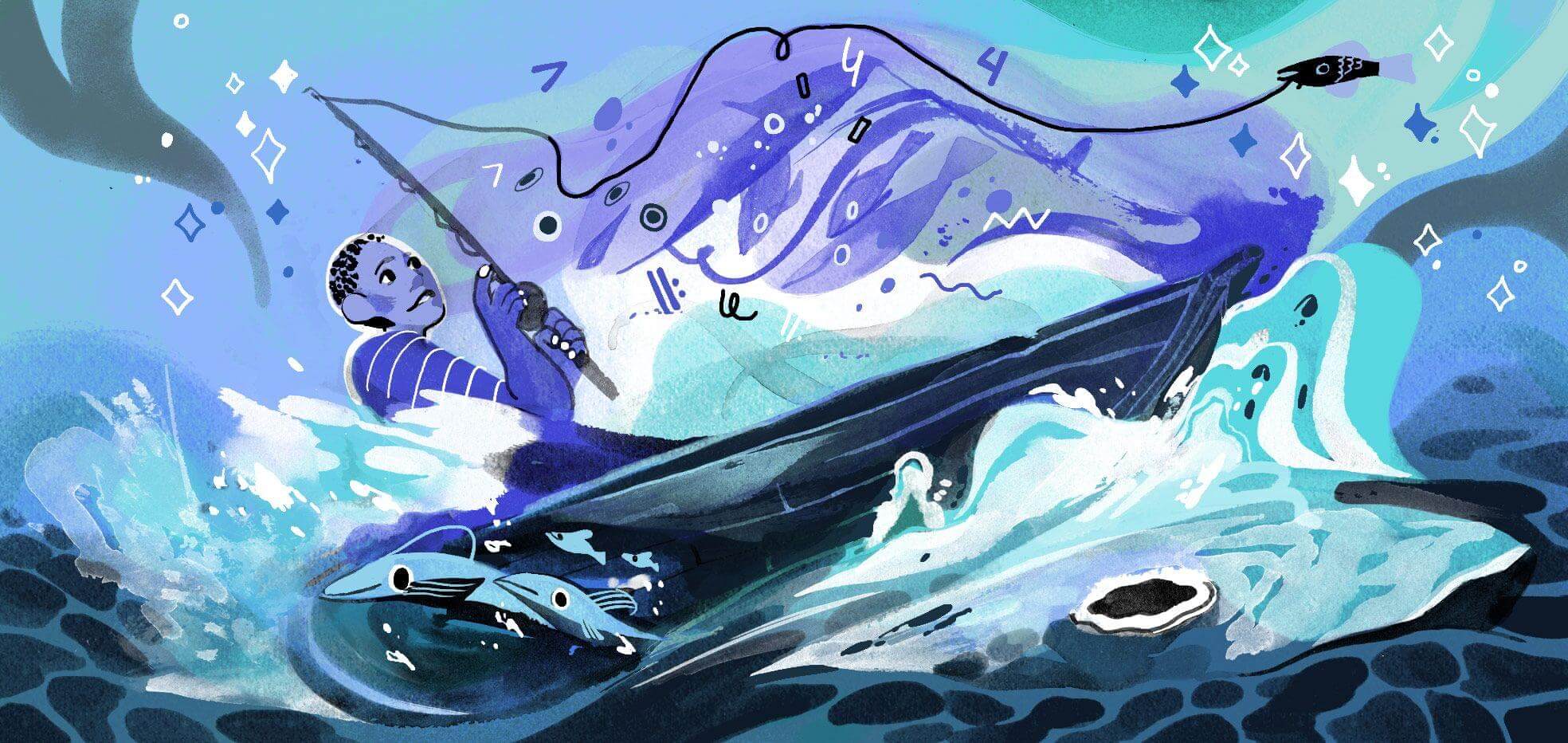
The secret to great support is teaching users how to fish
Main illustration: Molly Mendoza
There is a famous old saying about the value of education: “Give a man a fish, and you feed him for a day. Teach a man to fish, and you feed him for a lifetime.”
A few years ago, I knew all about feeding people on a daily basis – I worked behind a deli counter in a supermarket, making up and serving sandwiches all day long.
I used to think a lot about the value of education. I knew the deli counter didn’t exactly offer a great career path and that I needed to find a way out, but the traditional model of education didn’t seem to suit me. After finishing school, I started a few computer science courses but I dropped out after three months each time. I couldn’t get used to lectures and exams and assignments, and after a while it became self-reinforcing. I was convinced I couldn’t thrive in a college environment.
The flip side to ‘learning by doing’ is ‘teaching by showing’
Then a few years ago, after I’d been working in the deli for 18 months, someone suggested I try a practical learning course at the Code Institute, which offers hands-on coding bootcamps where you learn by doing. I signed up for an intensive three-month course, and immediately loved it. The course was demanding, but the approach of applied teaching was perfect for how I like to learn. There were no tests, rather we were tasked with building things.
Within weeks, I was thriving, and was asked to help teach the very next course, helping other students upskill the way I did and teach them the course material.
Flip side of education
In that role, I learned firsthand the flip side to “learning by doing”, which of course is “teaching by showing”.
The modern education system doesn’t give people much choice about how they get to learn. We have classes, get homework and take tests. And sure, some students will dive into all the homework and ace the tests, but for some of us, that approach isn’t so effective. We prefer to absorb information by doing, our expertise growing with every day of practical experience.
The teaching position at the Code Institute led eventually to jobs in other technology companies, and ultimately to my role here at Intercom, where I’m a Customer Support Engineer.
I couldn’t have predicted my three-month course would lead me on this path, but in many ways, it feels like a logical evolution – offering support to Intercom customers is as much about teaching as about supporting.
Supporting through teaching
Our approach to product education begins with having high-quality material such as docs, demos, articles and webinars, but it doesn’t end there – one of our core values of customer support is that we actively educate our users while solving their problems or answering their questions.
We really believe in letting customers help themselves
Above all, we strive to empower the user, because helping our customers make the best use of the product extends beyond fixing their most pressing problem and answering their questions. On top of that, we really believe in letting customers help themselves, and we do that by pointing them towards all the educational resources we have and by expanding their knowledge of the product and its potential.
Many other companies, on the other hand, consider customer support as merely a problem-solving exercise to be done as speedily as possible. My own personal experience of customer support has often been a sense that the agent is trying to get rid of you from the very start. It certainly doesn’t feel very empowering.
Conversations, not tickets
We often make the point that we call our support interactions with customers conversations rather than tickets, and that reflects our core mission – making business personal.
Having conversations rather than tickets is about more than the words we choose to describe them – a conversation involves a back and forth interaction that opens up the possibility of teaching and learning. Tickets, on the other hand, just get crossed off a list.
That dynamic expands what customer support is all about – it’s no longer just about solving problems, and becomes a much more instructional position. The relationship between the customer and the support team is no longer defined by one-off, problem-fixing interactions and instead becomes a longer-term learning relationship. The pay off is so much greater.
The learning, by the way, is on both sides
The learning, by the way, is on both sides – just as we help our users learn how to succeed with Intercom, we are constantly learning about how they use Intercom, and where it can be improved and developed. And as a customer support engineer, I’m always learning and expanding my knowledge of languages such as Ruby and actually helping to build tools that impact not just my own work, but the rest of my team as well. It feels like an extension of that coding bootcamp in a lot of ways.
Which brings me back to that old saying about teaching a man how to fish – there is a lot contained in that seemingly simple phrase, and it encapsulates so much of how I equipped myself for a career at Intercom, and also how I approach my job of helping customers. Offering instruction, not just handing out answers; empowering for the long-term, not just providing an immediate solution.
More than anything, I now realize there is something so fitting about the fact that the best lesson I’ve ever learned has been a lesson about learning.
If you’re interested in joining the Customer Support team at Intercom, we’re hiring!







